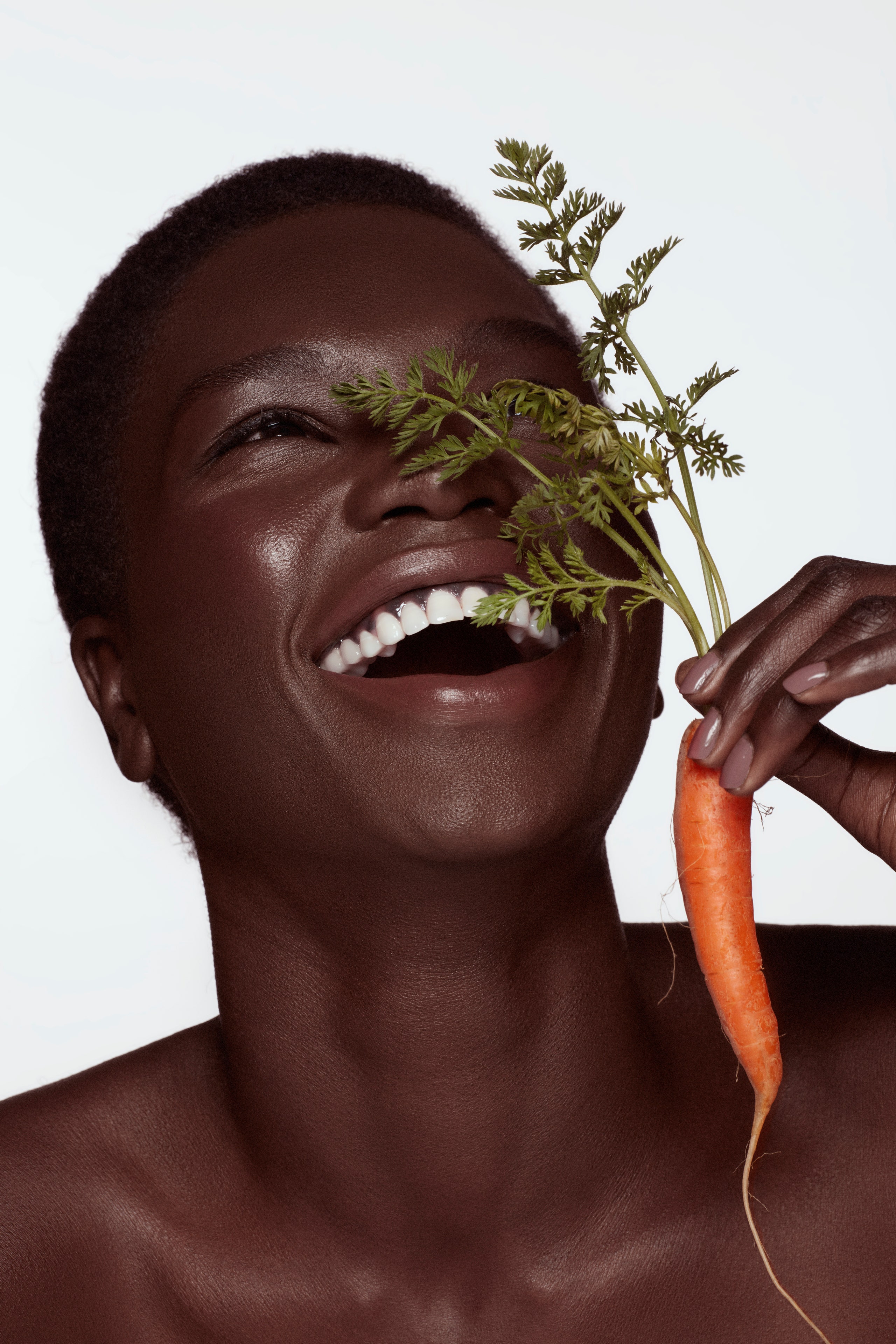Summer, as wonderful as it is, has some downsides—especially when it comes to its effect on hair and skin. Although I use a strong SPF and plenty of extra-hydrating treatments, I’ve noticed I’m usually looking slightly weathered by August.
Do we need to take extra care of our skin and hair in the summer? Nutritionist Luis Alberto Zamora says “yes”—and that means paying special attention to our diets. After all, the health of our skin, hair, and nails, is a true reflection of how we eat.
“Good skin depends not only on our beauty routines, but also on the nutrients we provide the body through food,” he explains. “Creams, oils, and other cosmetics work from the outside, and—depending on the molecule—they penetrate more or less deeply into the different layers.” Therefore, it is essential to also nourish our bodies from the inside.
In the summer, this is particularly true. In addition to generating more free radicals through UVA and UVB, exposure to the sun accelerates the photoaging process and increases skin dehydration.
Below, a look at precisely what to eat for better skin and a gorgeous glow.
The three essentials
Achieving better skin comes down to eating foods that offer these three essentials: hydration, antioxidants, and vitamins.
Foods that hydrate
In the summer, Zamora says classic warm-weather foods such as watermelon are perfect for helping us maintain optimal levels of hydration. Also on the list? Cucumbers, celery, zucchini, and spinach. “We tend to think that lettuce has a lot of water, but if we compare it with other foods, a 55 gram portion of lettuce only provides a fifth of a glass of water. You’re better off eating tomatoes and canned white asparagus for skin hydration.”
Vitamins for renewal
Zamora also stresses that the skin needs sufficient nutrients to renew itself, so it’s important to include foods that contain high levels of vitamins like A, E, and B in our diets. “In addition, we need to increase our intake of vitamin C, which is necessary for the correct formation of collagen to help keep skin firm, elastic, and properly hydrated.”
Citrus fruits like oranges, limes, lemons, and grapefruit, are a rich and refreshing source of vitamin C, although nothing beats red pepper. “It’s another vegetable that should be on the list of essentials for healthy skin in summer, especially if we add it raw to salads or vegetable smoothies to help cool us down.” She also says not to forget about other high-vitamin fruits such as kiwis, guava, mango, papaya, and raspberries when looking for a healthy snack on hot days.
Antioxidants for sun protection
Zamora also stresses the importance of helping the skin protect itself from the effects of prolonged exposure to the sun by eating foods rich in antioxidants. “They will never replace a good sun protection cream, which filters UVA and UVB rays, but they will complement the action by defending against the free radicals that the sun generates inside the skin and that accelerate the aging process.”
One small but mighty food that the nutritionist especially recommends: blueberries, which she calls a bomb of antioxidants: “blueberries contain flavonoids, anthocyanins, phenols, vitamin E, and vitamin C, which have an antioxidant function.”
Broccoli is another beneficial food that we should all be eating more of in the summer—especially if it is steamed, which retains more of its healthy properties. “Broccoli is very rich in lutein and zeaxanthin, antioxidants related to good eye health. Remember that sunlight also affects the eye and vision, so, in addition to helping protect the skin, broccoli has that added benefit.”
Grapes, carrots, and green tea, which are rich in catechins, also provide antioxidants that help reduce inflammation, which in turn helps counteract the impact of the sun. “We can also get these catechins in pistachios and avocado—perfect for a day at the beach,” concludes the expert.
